Andrea Costanzo
Robust DNN Watermarking via Fixed Embedding Weights with Optimized Distribution
Aug 23, 2022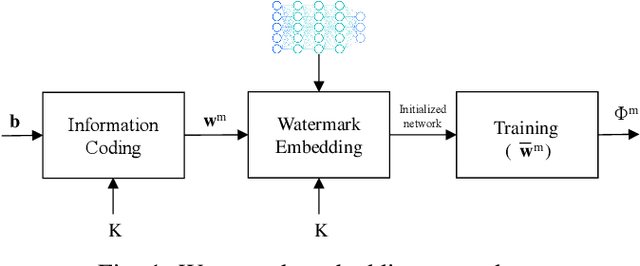
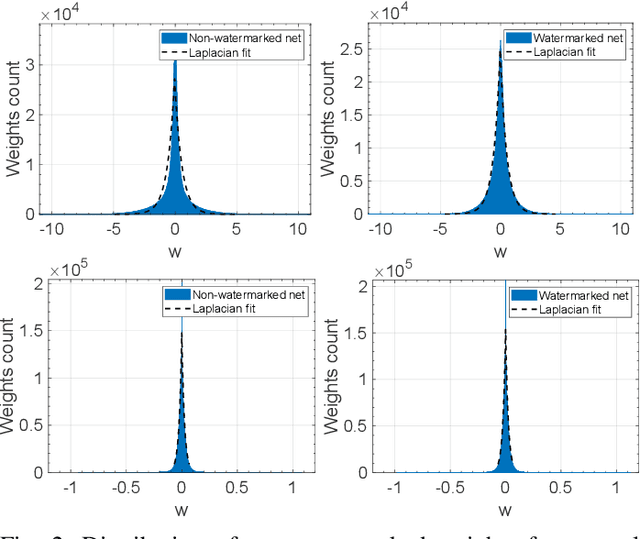
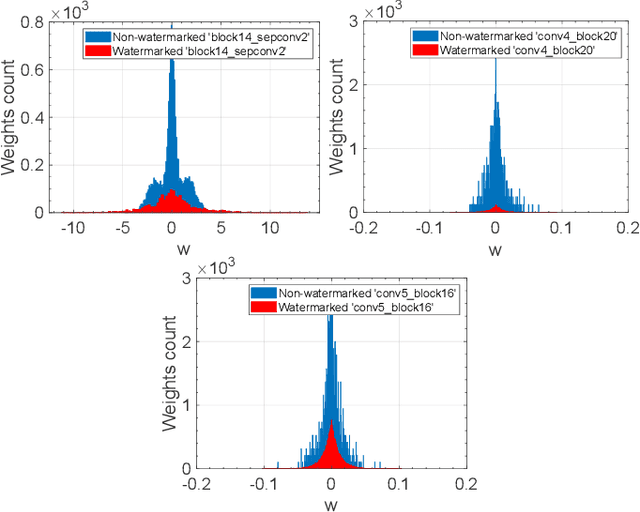
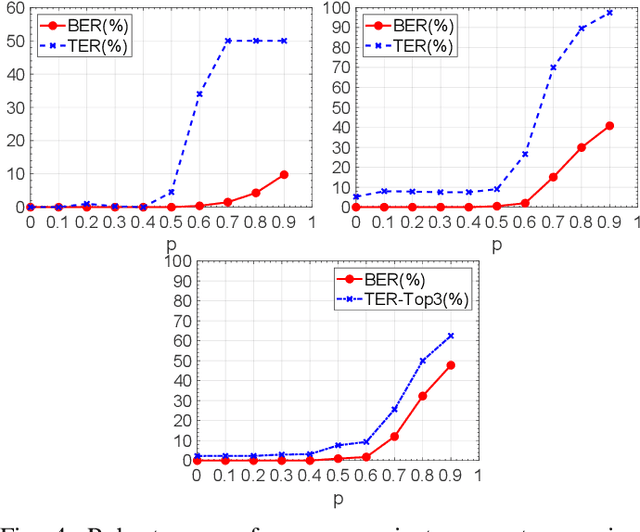
Abstract:Watermarking has been proposed as a way to protect the Intellectual Property Rights (IPR) of Deep Neural Networks (DNNs) and track their use. Several methods have been proposed that embed the watermark into the trainable parameters of the network (white box watermarking) or into the input-output mappping implemented by the network in correspondence to specific inputs (black box watermarking). In both cases, achieving robustness against fine tuning, model compression and, even more, transfer learning, is one of the most difficult challenges researchers are trying to face with. In this paper, we propose a new white-box, multi-bit watermarking algorithm with strong robustness properties, including retraining for transfer learning. Robustness is achieved thanks to a new information coding strategy according to which the watermark message is spread across a number of fixed weights, whose position depends on a secret key. The weights hosting the watermark are set prior to training, and are left unchanged throughout the entire training procedure. The distribution of the weights carrying out the message is theoretically optimised to make sure that the watermarked weights are indistinguishable from the other weights, while at the same time keeping their amplitude as large as possible to improve robustness against retraining. We carried out several experiments demonstrating the capability of the proposed scheme to provide high payloads with practically no impact on the network accuracy, at the same time retaining excellent robustness against network modifications an re-use, including retraining for transfer learning.
CNN-Based Detection of Generic Constrast Adjustment with JPEG Post-processing
May 29, 2018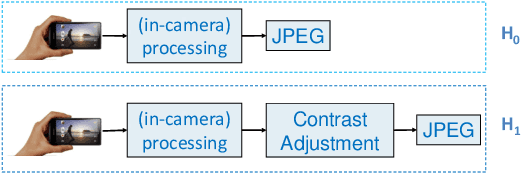
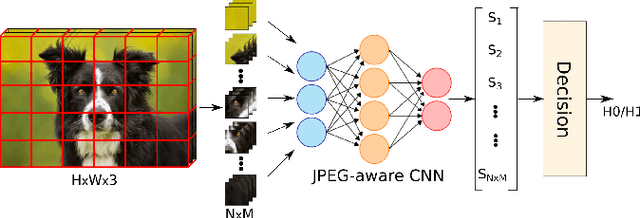
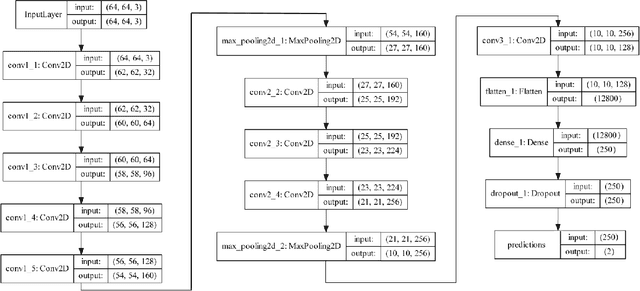
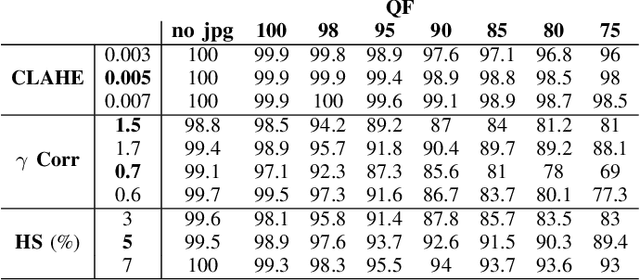
Abstract:Detection of contrast adjustments in the presence of JPEG postprocessing is known to be a challenging task. JPEG post processing is often applied innocently, as JPEG is the most common image format, or it may correspond to a laundering attack, when it is purposely applied to erase the traces of manipulation. In this paper, we propose a CNN-based detector for generic contrast adjustment, which is robust to JPEG compression. The proposed system relies on a patch-based Convolutional Neural Network (CNN), trained to distinguish pristine images from contrast adjusted images, for some selected adjustment operators of different nature. Robustness to JPEG compression is achieved by training the CNN with JPEG examples, compressed over a range of Quality Factors (QFs). Experimental results show that the detector works very well and scales well with respect to the adjustment type, yielding very good performance under a large variety of unseen tonal adjustments.
 Add to Chrome
Add to Chrome Add to Firefox
Add to Firefox Add to Edge
Add to Edge